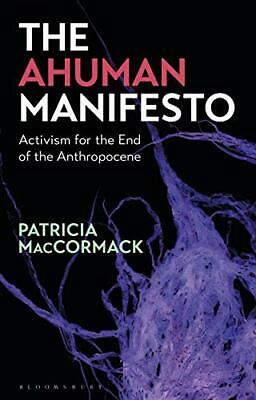One of the phrases in the mouth of managers or bureaucrats that indicates almost unfailingly that they are about to commit an act of betrayal is, “We believe passionately in.”
The only thing that most managers or bureaucrats believe in passionately is their career, in the broad sense of that term: for they are quite willing to abandon or sacrifice a career completely in the narrow sense if it is in the interest of their career in a broader sense.
I learned this in the hospitals in which I worked. As soon as a hospital manager said “I believe passionately in the work that Department X has been doing,” I knew that Department X was about to be closed down by that very same manager.
Thus, when I read that a publisher claimed that “We believe passionately in freedom of speech,” I knew at once that the publisher was about to withdraw a book from publication that it had previously advertised for publication.
Theodore Dalrymple, “‘Passionate’ Belief in Freedom of Speech and Multiplying Orthodoxies”, New English Review, 2020-12-22.
April 16, 2021
QotD: “Declaring passionate belief in freedom of speech”
April 9, 2021
April 6, 2021
QotD: Rap music
I would like to think that nothing human is alien to me (as the Roman playwright and former slave Terence put it), but it is not quite true. I draw the line, for example, at rap music, which always puts me in mind of experiments I witnessed during physiology classes fifty years ago, in which electrodes were placed in the amygdala of cats and stimulation of which caused a reaction of insensate and undirected rage (in the cat). To change the analogy slightly, rap music is the noise that hornets, if they could vociferate, would make when their nest was disturbed.
Theodore Dalrymple, “Liars and Maligners”, Taki’s Magazine, 2020-11-13.
April 5, 2021
The Ahuman obsession
Theodore Dalrymple considers the work of an English professor who advocates for the extinction of the human race:
Professor MacCormack’s main idea seems to be that the only way to save the planet from destruction is for humanity not to reproduce itself and thereby to die out within a generation or two. She wants to make the world safe for the worms and the wasps, though her scheme would be hard luck on those species that parasitize only Man. They would have to die out too. But, as the Reverend Charles Caleb Colton put it in 1821, “Let no man presume to think that he can devise any plan of extensive good, unalloyed with evil.” If Man dies out, so too will Wuchereria bancrofti, one of the filarial parasites that cause elephantiasis, along with other such species, but I suppose that this is but a small price to pay for the immense benefit overall wrought by the extinction of Mankind.
Naturally, I sent for her latest book, The Ahuman Manifesto: Activism for the End of the Anthropocene. Thanks to the epidemic all the libraries were shut, though in other respects the virus’ efforts to end the Anthropocene were, from the professor’s rather special point of view, feeble or pathetic, with only 2,000,000 deaths so far and 6,998,000,000 to go. If I wanted to read the book, I would have to buy it.
I am an obsessional reader; that is to say, when I start a book I feel obliged to read it through from cover to cover. Moreover, I would rather read anything than nothing at all. Once in Los Angeles I was stuck in a hotel bedroom with nothing to read but the yellow pages (there were still telephone directories in those days), from which I learned a humiliating lesson. Books have long been at the center of my life, but I discovered how unimportant they are in the lives of most people. There was about half a page devoted in the yellow pages to bookshops, but scores to private detectives. No wonder Philip Marlowe chose Los Angeles as his place of work.
But Professor MacCormack’s book defeated me, not only sapping my will to read further but inducing a state almost of catatonia. It certainly cured me, at least temporarily, of my obsessional desire to finish any book that I have started. Her style made The Critique of Pure Reason seem as light and witty as The Importance of Being Earnest. She appears to think that the English plural of manifesto is manifesti rather than manifestos; I admit that it conjured up in my mind a new Italian dish, gnocchi manifesti.
Open the book at any page and you will find passages that startle by their polysyllabic meaninglessness combined with the utmost crudity. By chance, I opened the book to page 144 and my eye fell on the following:
The multiplicity of becoming-cunt as an assemblage reassembles the tensors upon which it expresses force and by which force is expressed upon its various planes and dimensions.
I have known deteriorated schizophrenic patients to speak more sensibly and coherently than this.
March 21, 2021
The two Britains, gastronomically speaking
Theodore Dalrymple on the British diet (at least before the neverending lockdowns):

“The Joy of Cookbooks” by shoutabyss is licensed under CC BY 2.0
As in many other things, the population has divided into two: those with increasingly refined tastes in gastronomy, and those who eat mainly junk and takeaway food for the quickest but also crudest possible gratification.
Gastronomy often seems the only aesthetic sphere in which the modern British display any real interest. Their dress, their music, their art (or at least such as gains any publicity), their literature, and of course their architecture, are hideously ugly, even militantly so, but a Michelin-starred restaurant receives their adulation — or did in the now-distant days when restaurants were open.
But the modern interest in food is not the same as a mass market for fish, which has, alas, mainly to be cooked, and the fact is that the British are, grosso modo, too lazy and ignorant to cook properly. Many millions of them would be horrified by the sight of a whole fish, or even any part of a raw fish: they don’t want to eat anything that hasn’t been through a complex industrial process, had chemicals and preservatives added to it, and cannot be just stuck in a microwave for a few minutes before consumption in front of the television. Besides, they wouldn’t know what to do with a fish, let alone a crustacean.
It is said that about a fifth of British children do not eat a meal with another member of their household (family would, perhaps, be a misleading term) more than once a fortnight, turning meals into asocial and even furtive occasions. Many households do not have a dining table, and in my visiting days as a doctor I discovered that the microwave is often a household’s entire batterie de cuisine.
This slovenly and asocial approach to eating — evident in the detritus left behind in British streets as people eat wherever they happen to be, in their cars, walking along, in trains and buses, in fact anywhere but a dining room and with others — is not the consequence of poverty, but of a degraded style of life.
Many years ago I noticed that shops in poor areas where there were many immigrants of Indian origin had enormous piles of a vast array of vegetables so cheap that the problem was carrying them home rather than their cost. I would see Indian housewives selecting their purchases with care and attention: the quality and not just the price mattered to them. Uncompelled by economic necessity to shop there, I would nevertheless do so; but I never saw poor whites doing so. The problem with all those vegetables was that they required cooking, preferably with skill, which very few poor whites, as against poor Indians, had. And this is a cultural problem, if the taste for and consumption of a diet of junk food (what the French more vividly call malbouffe) is a problem.
The Indians are fat, with bad health consequences, from eating too much good food; the native British, with bad health consequences, from eating too much bad food. The prevalence of obesity in Britain, greater than in most other European countries, is possibly one of the reasons that its death rate from COVID-19 is so high, among the highest if not actually the highest. And this obesity is immediately obvious on arrival in Britain from any European country.
February 24, 2021
Solzhenitsyn was far from the first to warn about the evils of Soviet rule
Theodore Dalrymple had a discussion recently with a Marxist professor:

Krushchev, Brezhnev and other Soviet leaders review the Revolution parade in Red Square, 1962.
LIFE magazine photo by Stan Wayman.
The professor was an intelligent man, and probably cultivated too. How was it possible, in the Year of Our Lord 2021, for such a person still to believe that, until the advent of Stalin, the Russian revolution was a good thing, to be emulated or repeated elsewhere?
How could anyone of his intelligence fail to realise that, though as ever there was much wrong with the world, attempts to put everything right at once by the implementation of petty intellectual schemes are fraught with danger, and have a history of mass slaughter behind them?
I think the answer must lie in the psychology of religion: when religious faith is replaced by a philosophy that prides itself on its rationality, it soon turns religious in the worst possible sense. it becomes an atheist theocracy.
Everything was known about the Soviet Union from the first. It is simply not true that Solzhenitsyn revealed anything to the West that, in essence, was not, or could not have been, known before.
I have, in desultory fashion for a number of decades, been collecting books about Russia and the Soviet Union from just before the Revolution until the Second World War, and while it is true that many of them are laudatory, with titles that now seem hilarious to us such as The Soviet Union Fights Neurosis, a very large number books of various genres, from essays to histories to memoirs to novels and short stories, were published that exposed the viciousness of Bolshevism from the very first — a viciousness that anyone with any imagination could have anticipated from Lenin’s literary style alone.
Leninist viciousness was viciousness of a new and more thoroughgoing type that acted on the mind as a virus acts on a computer (viciousness, both actual and potential, is, alas, a constant of human history because of our flawed nature).
Solzhenitsyn was right about the difference between Macbeth, who from personal ambition killed people, but only a few, and the ideologically-motivated mass-killings of the Soviet Union and elsewhere — the difference being precisely in the effect of ideology.
But what was really different about Solzhenitsyn, apart from his literary talent, was that Western intellectuals were now prepared to believe what he said, whereas shortly before they had rejected as mere propaganda evidence of a very similar nature produced by others.It was so startling to meet someone who still believed that a “pure” revolution could take place, and that such a person was teaching history of all things, in a reputable, or at any rate reputed, university, that, like Karl Kraus confronted by Hitler, I could think of nothing to say.
I had no idea whether he still taught undergraduates, or whether in doing so he suppressed at least some of his views (as a judge is supposed to suppress his own private opinions): but I confess that the charge against Socrates, that of corrupting youth, came into my mind.
February 18, 2021
QotD: The “European Project”
Whatever else the European project was meant to be, it was never meant to be very democratic. Its deus ex machina, Jean Monnet, was quite clear abut this: the plebe was neither intelligent or informed enough to decide its own fate, at least as regards high politics. It would be dishonest to say that such thoughts never run through the heads of the more intelligent sector of the population in respect of the less intelligent; you have only to walk down the street to see that the voice of the people is hardly that of God. How many people, for example, know what the interest rate should be (assuming, that is, that there is a correct answer), or even what factors should be taken into account when assessing it? But few highly intelligent people would put their night thoughts into practice, and simply say, “We should rule because we are the most intelligent and know best.”
Theodore Dalrymple, “European Empire, Fractured”, Law & Liberty, 2020-11-10.
January 12, 2021
QotD: The use and abuse of stigma
Let us first take stigma, something which in Dr. Volkow’s social philosophy is entirely harmful and should be abolished. There is no doubt that stigma can be cruel, unjust, and unfeeling. One of the most obvious examples of this was the stigma that attached to illegitimate children, as if they were responsible for the fact of their own illegitimacy.
But stigma, and hence the fear of stigma, can be beneficial in a social creature such as Man. I want the good opinion of my neighbours, I do not want them to think I am rude or dishonest. Fearing the stigma of being thought so, I try harder to be polite and honest.
Of course, wanting the good opinion of others may, in certain situations, have bad effects. Wanting the good opinion of my superior in the Nazi Party would be very bad. But that does not mean that desiring the good opinion of others is always intrinsically bad. In the same way, fear of stigmatization is not always bad (and there can be no fear of stigma without the existence of the thing itself). For example, it might be that people are discouraged from taking drugs, drinking too much, or stealing for fear of being stigmatized.
Theodore Dalrymple, “Stigma and Sympathy”, The Iconoclast, 2020-09-23.
December 28, 2020
QotD: Book accumulation
I am an accumulator rather than a collector, and my library grows according to a bad Malthusian principle: I buy books geometrically and read them arithmetically, with the most obvious consequences for shelf-space. Furthermore, at my age I should be shedding possessions rather than still accumulating them: but I have this strange reluctance to get rid even of books that I shall never look at again and were no good in the first place.
However, I never buy a book without intending to read it, and intention is, if not nine-tenths of accomplishment, at least some portion of it.
Theodore Dalrymple, “Sufficiently Educated to Embrace the Simplistic”, The Iconoclast, 2020-09-24.
November 30, 2020
QotD: Grandstanding, or more properly, cant
A major proximate cause of the polarisation of opinion and consequent envenoming of political life is what the authors of this book call grandstanding, though a better word for it (in my opinion) is cant, a word which, oddly enough, they never use.
To cant is to utter moral sentiment far in excess of what is felt or could ever be felt. The purpose of cant is either to present the person who utters it as morally superior to others or to himself as he really is, or to shut other people up entirely. These purposes are not mutually exclusive, of course.
Cant is not new in the world, though the authors of this book offer no history of it. “Of all the cants that are canted in this canting world …” Laurence Sterne wrote more than quarter of a millennium ago, and Doctor Johnson suggested that his interlocutor should clear his mind of cant. My late friend, Peter Bauer, when elevated to the House of Lords, took “Let us be free of cant” as his heraldic motto, but far from ushering in an era free of it, subsequent years have proved a golden age of cant. The social — or antisocial — media have been a powerful catalyst of cant.
Theodore Dalrymple, “The Expanding Tyranny of Cant”, The Iconoclast, 2020-08-26.
November 26, 2020
QotD: The “history-as-nightmare” narrative
The idea of the past as nothing but a nightmare, specifically one of injustice, is probably the prevailing historiographical trope of our time. Certainly no one could reasonably claim that nightmares have been lacking in human history. And yet, at the same time, it is undeniable that there has been progress: very few of us would care to take our chances in the kind of conditions, either political or material, that prevailed in, say, the 16th century.
The fact remains, however, that for more than one reason, history-as-nightmare is nowadays an infinitely more powerful organising narrative principle than history-as-progress.
In the first place, nightmares present themselves much more vividly to the imagination than the slow accretion of progress, just as hell is much more easily envisaged than heaven — and more enjoyable to imagine, too.
In the second place, when progress occurs, it is immediately taken for granted, as if it were a merely natural process that had never really required human effort to take place. Who now is grateful for the elimination of the suffering caused by peptic ulceration, for example? There is simply no cultural recollection of peptic ulceration at all, though well within living memory books were written about how to live with, or despite, your ulcer, what diet to take to assuage your ulcer, and so forth. Once they are cured, it is simply taken for granted that people do not have such maladies — progress magically did away with them.
In the third place, and most importantly, the fact of progress is much less useful to political entrepreneurs than is the narrative of history as nothing but a nightmare that continues to the present day and, as Marx put it, weighs upon the brain of the living. Only by keeping the memory of the nightmare ever-present in the minds of their sheep, thereby stoking resentment, may the political shepherds herd, and then fleece, the flock.
A fourth great advantage of history-as-nightmare is that it explains the failures and failings of everybody who is dissatisfied or disappointed with his life. To misquote Shakespeare: The fault, dear Brutus, is not in ourselves, but in our stars, that we are underlings. We do not fail the world, the world fails us. How comforting a thought!
Theodore Dalrymple, “Against History-as-Nightmare”, Law & Liberty, 2020-08-11.
October 17, 2020
QotD: The inherent triviality of most “news” programs
Anyone who has ever appeared on a radio discussion programme will know how frustrating the whole business is. The time allotted even for the most serious subjects is short: a BBC producer once invited me on to a “long” discussion about the burning issue of the day, and when I asked what she meant by long, she replied with neither irony nor shame, but perfectly matter-of-factly, “Six minutes”. Since there were to be three other guests on the programme, in-depth analysis was hardly the order of the day. Brevity these days is not the soul of wit: it is the guarantor of triviality.
Anthony Daniels, “The European Working Time Directive & the Sound-Bite Culture: why the latter makes arguing against the former impossible”, The Social Affairs Unit, 2004-08-09.





